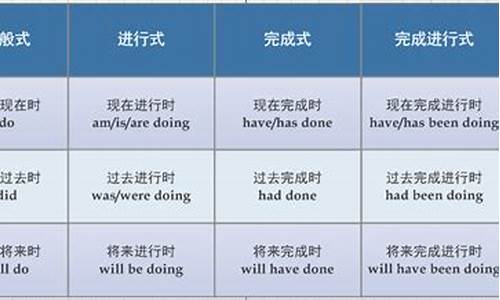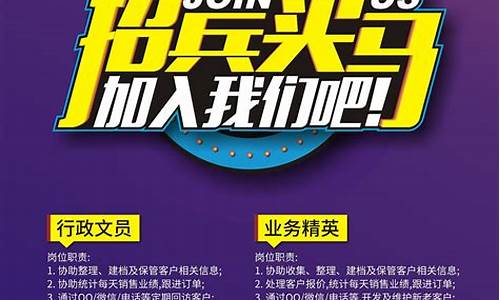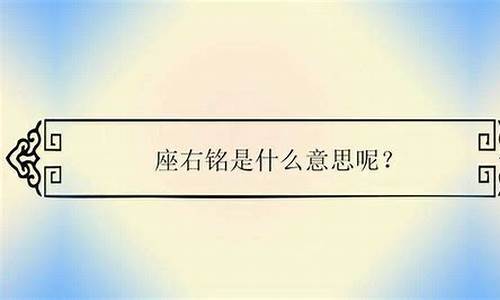您现在的位置是: 首页 > 正能量的句子 正能量的句子
一般过去时的时态短语_一般过去时态的英语句子
tamoadmin 2024-09-05 人已围观
简介1.用初中英语的“六个时态”怎么造句?2.用一般过去时态的句子描述自己经历过的事情,不少于12句(英文作文)3.一般过去时句子有哪些?4.英语各时态造一个句子,句子别太简单,请各位英语高手帮帮忙5.关于英语的时态句型有哪些6.一般过去时的英语一般过去时态:表示过去某一时间所发生的动作或存在的状态。谓语动词要用一般过去式。经常与yesterday(昨天),lastweek(上周),lastmonth
1.用初中英语的“六个时态”怎么造句?
2.用一般过去时态的句子描述自己经历过的事情,不少于12句(英文作文)
3.一般过去时句子有哪些?
4.英语各时态造一个句子,句子别太简单,请各位英语高手帮帮忙
5.关于英语的时态句型有哪些
6.一般过去时的英语

一般过去时态:表示过去某一时间所发生的动作或存在的状态。谓语动词要用一般过去式。经常与yesterday(昨天),
last
week(上周),
last
month(上个月),
last
year(去年),
two
months
ago(两个月前),
the
day
before
yesterday(前天),in
1990
(在1990年),
in
those
days
(在那些日子里)等表示过去的时间状语连用。
如:
I
was
born
in
1990.
(我出生在1990年)。
When
did
you
go
to
the
park?
(你是什么时候去的公园)。
I
went
to
the
park
last
week.
(我是上周去的公园)
在上面的句子中第一句属于be动词的一般过去时态;第二句和第三句属于实义动词的一般过去时态。
1.
Be
动词的一般过去时态
在没有实义动词的句子中使用be动词,
am
is
的过去式为was;
are的过去式为were.
构...一般过去时态:表示过去某一时间所发生的动作或存在的状态。谓语动词要用一般过去式。经常与yesterday(昨天),
last
week(上周),
last
month(上个月),
last
year(去年),
two
months
ago(两个月前),
the
day
before
yesterday(前天),in
1990
(在1990年),
in
those
days
(在那些日子里)等表示过去的时间状语连用。
如:
I
was
born
in
1990.
(我出生在1990年)。
When
did
you
go
to
the
park?
(你是什么时候去的公园)。
I
went
to
the
park
last
week.
(我是上周去的公园)
在上面的句子中第一句属于be动词的一般过去时态;第二句和第三句属于实义动词的一般过去时态。
1.
Be
动词的一般过去时态
在没有实义动词的句子中使用be动词,
am
is
的过去式为was;
are的过去式为were.
构成:肯定句:主语+was
(were)
+宾语
如:I
was
late
yesterday.
(昨天我迟到了。)
否定句:主语+was
(were)
+not+宾语
如:We
weren't
late
yesterday.
(我们昨天没迟到)
疑问句:Was
(Were)
+主语+宾语
如:
Were
you
ill
yesterday?
(你昨天病了吗?)
肯定回答:
Yes,
I
was.
(是的,我病了。)
否定句:
No,
I
wasn't.
(不,我没病。)
特殊疑问句:
特殊疑问词+was
(were)
+主语+宾语
如:When
were
you
born?
你是什么时候出生的?
用初中英语的“六个时态”怎么造句?
你要的句型:
一、一般过去时的句型
肯定句结构为:
主语+动词的过去式+其它。
如:He went to the toy store?
yesterday. 他昨天去玩具店了。
否定句结构为:
主语+did not (didn't)+动词原形+其它。
如:He didn't go to the toy store yesterday.?
他昨天没去玩具店。
一般疑问句的构成:
Did+主语+动词原形+其它?如:
1) -Did you go to Beijing last week?
-Yes, we did. (No, we didn't.)
2) -Did you meet the businessman before?
-No, I didn't. (Yes, I did.)
特殊疑问句的构成:
疑问词+did+主语+动词原形+其它?如:
1) -What did you do last night?
-I did my homework.
2) -Where did you go last week?
-I went to Shanghai with my parents.
口诀
一般过去时并不难,表示过去动作、状态记心间。?
动词要用过去式,时间状语句末站。?
否定句很简单,didn't 站在动词原形前,其它部分不要变。?
一般疑问句也好变,did放在句子前,主语、动词原形、其它部分依次站。?
特殊疑问句也简单,疑问词加一般疑问句记心间。?
最后一条请注意,动词过去式要牢记。
二、现在进行时句型:
肯定句
(1)第一人称:主语 + am + 现在分词 + ……
eg. I am watching TV. 我现在看电视。
(2)第三人称单数:主语 + is + 现在分词 + ……
eg. She is washing the dishes. 她正在洗澡。
(3)第二人称及复数人称:主语 + are + 现在分词 + ……
eg. They are playing games. 他们正在做游戏。
否定句
句型 主语 + 相应be动词 + not + 现在分词 + ……
eg. He isn’t watching TV. 他没在看电视。
I am not cooking. 我没有在做饭。
We aren’t heing English calss. 我们没在上英语课。
◆注意◆ is not和are not可缩写为isn’t和aren’t。
一般疑问句
句型 相应be动词 + 主语 + 现在分词 + ……?
eg. Are you dancing? 他们正在跳舞吗?
Is he drawing a picture? 他正在画一张画吗?
Are you talking with your friend? 你正和你的朋友谈话吗?
一般疑问句的答语
(1)肯定回答:Yes, 主语 + 相应be动词。
(2)否定回答:No, 主语 + 相应be动词 + not。
eg. Are you listening to the music? Yes, I am. / No, I am not. ? 你正在听音乐吗?是的,我正在听。/ 不,我没在听。
Is Aunt Wang knitting a sweater? No, she isn’t. 王阿姨正织毛衣吗?不,她没有。
特殊疑问句
特殊疑问词 + 相应be动词 + 主语 + 现在分词 + ……?
eg. What are you doing? 你正在干什么?
Who is singing a song? 谁在唱歌呢?
Why are they cleaning their room? 他们为什么在打扫房间?
特殊疑问句的答语
回答特殊疑问时,根据不同的疑问词的情况来决定回答方式。回答what提问时,答语是现在进行时的肯定形式;回答who提问时,只需说明主语是谁,再加相应的be动词即可。
eg. What is he doing? He is writing a letter. 他正在干什么?他正在写信。
Who is swimming in the lake? Jim is. 谁正在湖里游泳?吉姆正在游泳。
三、一般将来时?
1.一般将来时的基本概念?
一般将来时表示将来某一时刻的动作或状态,或将来某一段时间内经常的动作或状态.一般将来时由助动词shall(第一人称),will(第二、三人称)+动词原形构成.美国英语则不管什么人称,一律用will.?
2.一般将来时的形式?
●will 常简略为 'll,并与主语连写在一起,如:I'll,he'll,it'll,we'll,you'll,they'll.?
●一般疑问句如用will you…?其简略答语须是Yes,I will或 No,I will not;如用 Shall you…?(较少见)其简略答语须是 Yes,I shall.或 No, I shall not..?
3.一般将来时的用法?
1)表示将来的动作或状态?
一般将来时常与一些表示将来的时间状语连用,如:?
tomorrow(明天), next week(下周), from now on(从现在开始);in the future(将来)等.?
2)表示将来经常发生的动作.?
4.一般将来时的其他用法?
一般将来时表示将来某一时刻的动作或状态,其表达形式除了“shall(第一人称),will(第二、三人称)+动词原形构成”外,还有以下几种形式.?
1)“to be going to+动词原形”表示即将发生的或最近打算进行的事.例如:?
①It is going to rain. 要下雨了.?
②We are going to he a meeting today. 今天我们开会.?
2)go, come,start,move,sail,lee,arrive,stay等可用进行时态表示按即将发生的动作,例如:?
I'm leing for Beijing.?
我要去北京.?
3)“be to+动词原形”表示按要发生的事或征求对方意见.例如:?
①Are we to go on with this work?我们继续干吗?
②The boy is to go to school tomorrow.这个男孩明天要去上学.?
4)“be about to+动词原形”表示即将发生的动作,意为:很快,马上.后面一般不跟时间状语.例如:?
We are about to lee.我们马上就走.?
5)某些词,如come, go, lee, arrive, start, get, stay 等的一般现在时也可表示将来.?
①The meeting starts at five o'clock.会议五点开始.?
②He gets off at the next stop.他下一站下车。
四、if引导的条件状语从句
结构:if+一般现在时,主语+将来时
含义:如果……,将要……
例如:If you ask him, he will help you.
如果你请求他,他会帮助你。
If need be, we’ll work all night.
如果需要,我们就干个通宵。
练一练
1. 如果你参加聚会,你将会过得很开心。
If you ________ the party, you __________.
2. 如果明天下雨,我们将不去野餐。
3. 如果你经常听英文歌,你将会喜欢英语的。
If you often ________, you _________________.
答案:
1. If you go to the party, you will he a good time
2. If it rains tomorrow, we won’t go to the picnic
慢慢看。
用一般过去时态的句子描述自己经历过的事情,不少于12句(英文作文)
一般现在时 He often walks to school.
一般过去时 He often walked to school last year.
一般将来时 He will walk to school tomorrow.
现在完成时 He has walked to school since 1990.
现在进行时 He is walking to school now.
过去进行时 He was walking to school this time yesterday.
一般现在时:表示通常性、规律性、习惯性、真理性的状态或者动作有时间规律发生的的一种时间状态。
一般过去时:过去习惯性、经常性的动作、行为;过去主语所具备的能力和性格。
一般将来时:表示将来某一时刻的动作或状态,或将来某一段时间内经常的动作或状态。
现在完成时:表示过去发生的动作对现在造成的影响或结果或表示过去的动作或状态持续到现在。
现在进行时:是英语的一种时态,表示正在进行的动作或存在的状态,表示动作发生的时间是“现在”。
过去进行时:表示过去在某一时间段或某一段时间内正在发生或进行的动作或状态。
一般过去时句子有哪些?
Describe your experiences with the simple past tense sentences, not less than 12 words students need to make their resumes specially, so they can he the chance. They can describe their characteristic to fit the job, the employers will see this and give you the chance. Students can also make their internship experience stand out, because the employers pay special attention to it.
英语各时态造一个句子,句子别太简单,请各位英语高手帮帮忙
一般过去时句子如下:
He was here just now.他刚才还在这里。
What did you do yesterday?你昨天做了什么事?
We often played together when we were children.我们小时候常在一起玩。
He used to smoke a lot, but he doesn’t now.他过去经常抽烟,但现在不抽了。
Whenever we were in trouble, he would help us.每当我们遇到困难,他都会帮助我们。
At that time she was very good at English.那时她英语学得很好。
He said he would wait until they came back.过去时态,同学们都不陌生的吧,但如何能灵活运用就要靠同学们自己了。加油!
关于英语的时态句型有哪些
英语时态分为16种:
1.一般现在时 I sometimes go to work on foot.我有时步行去上班。
2.一般过去时 I was born in 13.我生于13年。
3.一般将来时 I will go to the zoo next Sunday.下周日我将去动物园。
4.一般过去将来时 I thought he would come. 我以为他会来。
5.现在进行时 It is snowing now.现在正在下雪。
6.过去进行时 I was playing volley-ball this time last Sunday.上周日的这个时候我正在打排球。
7.将来进行时 What will you be doing this time tomorrow?明天这个时候你将做什么?
8.过去将来进行时 They said they would be coming.他们说了他们将要来。
9.现在完成时 He has lived here for three years.他在此住了两年了。
10.过去完成时 By nine o’clock last night, we had got 200 pictures from the spaceship.
到昨晚9点钟,我们已经收到200 张飞船发来的。
11.将来完成时By the end of the month he will he been living/working/studying here for ten years. 到了月底他在这里居住/工作/学习就满十年了。
12.过去将来完成时I shall he finished reading the book by the end of this week. 我将在本周末前读完这本书。
13.现在完成进行时 I've been writing letters all this morning. 我写了一上午信。
14.过去完成进行时 By the time he was ten, Edison had built a lab for himself. 到爱迪生10岁时,他已给自己建了一个实验室。
15.将来完成进行时I shall he been working here in this factory for twenty years by the end of the year. 到今年年底,我将在这个工厂工作20年了
16.过去将来完成进行时 I thought you'd he left by this time.我想这会儿你已经走了。
一般过去时的英语
总共5种常用时态,下面为你一一举例:
一般现在时态:I
am
a
student(我现在是个学生)
一般过去时态:I
was
a
student
2
years
ago(两年前我是个学生)
现在完成时态:I
he
been
a
student
for
13
years
since
I
was
6.(从我6岁开始到现在,我已经做了13年学生了)
过去完成时态:I
had
been
a
student
for
many
years
when
I
graduated
from
my
college
last
year.(想来在我去年大学毕业的时候,我已经做了好多年学生了)
一般将来时态:I
am
going
to
be
a
teacher(我就快成为一个老师了)
一般过去时英语是在动词结尾处加上ed。
一般过去时英语是表示过去某个时间发生的动作或存在的状态,也可表示过去经常或反复发生的动作。常和yesterday, ago, last week等表示过去的时间状语连用。
一般过去时态如下:
1、be动词的过去式:I/He/she/it was(not)。
You/we/they were。
一般疑问句was、were放在句首。
2、动词过去式:
肯定句:I watched cartoons。
我在看动画片。
3、一般疑问句:
例句:Did you read book last night?你昨晚读书了吗?
Yes,I did。 是的。我读书了。
4、否定句:They didn’t go the the part yesterday。
他们昨天晚上没有参加聚会。
动词过去式变化规则:
1、一般在动词末尾加上ed,如:pull-pulled, cook-cooked。
2、结尾是e加d,如:taste-tasted。
3、末尾是辅音字母加一个元音字母和一个辅音字母的重读闭音节,应双写末尾的辅音字母,再加上ed,如:stop-stopped。
4、以“辅音字母加y”结尾的,变y为i,再加上ed,如:study-studied。









